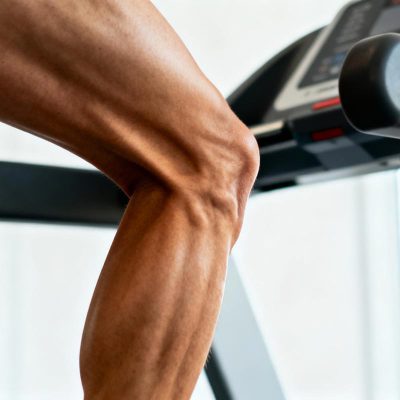You’ve probably heard this claim more than once: “Running on a treadmill is bad for your knees!”
In today’s world, where more and more people are taking up running for fitness, this statement has discouraged quite a few beginners. But the truth is — this is one of the most common yet misunderstood fitness myths out there.
Today, we’ll analyze it from multiple perspectives — medical science, biomechanics, treadmill design, running posture, and training habits — to uncover whether treadmills really harm your knees.
Medical Perspective
The real reason behind knee pain or injury is that the joint experiences more impact force than it can handle.
This issue isn’t directly caused by the treadmill itself — it depends on how you run and how your body is conditioned.
Key factors include:
- Proper running form
- Reasonable training volume
- Sufficient leg and core strength to support the joints
Studies show that running at a moderate pace with correct posture does not increase the risk of knee arthritis — in fact, it may even strengthen cartilage metabolism and improve joint health.
In short: running doesn’t “damage” your knees — improper technique does.
Biomechanical Perspective: Treadmill vs. Outdoor Running
| Factor | Treadmill | Outdoor Surface |
|---|---|---|
| Shock Absorption | Equipped with cushioning system — less impact | Harder surface — greater impact |
| Surface Consistency | Smooth and even — lower risk of twisting an ankle | Uneven terrain, influenced by surface quality |
| Ground Reaction Force | Slightly backward | More vertical |
| Wind Resistance | Indoor environment — no wind | Outdoor — wind adds resistance and energy demand |
Conclusion: From a mechanical standpoint, a treadmill can actually be gentler on your knees than running outdoors, provided it’s well maintained and has good shock absorption.
Posture & Technique: The Real Key to Knee Health
This is where most knee problems actually begin.
- Overstriding or heavy landing
Each step can generate impact forces 2–3 times your body weight on the knees.
✅ Tip: Take shorter strides, land softly on the midfoot or forefoot, and keep your knees slightly bent to absorb shock. - Incorrect incline settings
Running with a steep incline puts extra stress on the front of your knees (the patellar tendon).
✅ Tip: Keep incline around 0–2% for beginners. - Improper speed
Running too fast or too slow can create unnatural mechanics and strain joints.
✅ Tip: Maintain a comfortable, natural rhythm. - Skipping warm-up and cool-down
Tight muscles and unlubricated joints increase the risk of strain.
✅ Tip: Always warm up before running and stretch afterward to aid recovery.
Individual Differences: Body Type & Muscle Strength Matter
- Heavier runners:
Tend to experience more knee pressure. Start with fast walking, elliptical workouts, or interval jogging. - Weak leg muscles:
If your quadriceps and hamstrings aren’t strong enough, your knees take most of the load.
Add strength training (like squats or leg presses) to support your running.
Equipment Perspective: Not All Treadmills Are Equal
Modern treadmills vary greatly in build quality.
Higher-end models often include:
- Multi-layer shock-absorbing decks
- Suspension-based cushioning systems
- Smart feedback or auto-adjust technology
These features help reduce joint impact and improve comfort, making treadmill running safer than cheap or poorly maintained machines.
Conclusion: “Treadmills Hurt Your Knees” Is a Myth
The truth: Treadmills themselves don’t damage your knees — bad posture, poor equipment, and overtraining do.
Our advice from Home Pet Essentials:
- Control your running volume and progress gradually — especially if you’re a beginner.
- Choose a treadmill with effective cushioning and a stable belt.
- Focus on warm-up and post-run stretching.
- If you already have knee issues, consider brisk walking, cycling, or swimming as lower-impact alternatives.



